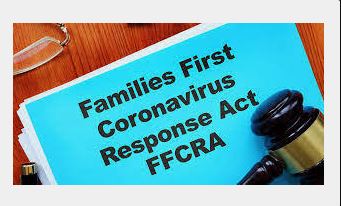
In April 2020, the Families First Coronavirus Response Act (FFCRA) went into effect, mandating that most employers with fewer than 500 employees provide paid leave to eligible employees who are unable to work because of certain coronavirus-related circumstances. This mandate is set to expire on December 31, 2020.
As Trenam Law’s Employment Law Group explained in its April 2020 bulletin, the FFCRA’s paid leave requirements are set forth in two smaller sections: the Emergency Paid Sick Leave Act (EPSLA), and the Emergency Family and Medical Leave Expansion Act (EFMLEA). The EPSLA provides for up to 80 hours of paid sick leave for an eligible full-time employee who is unable to work, remotely or otherwise, because the employee is experiencing COVID-19 symptoms and is seeking a diagnosis; is subject to a government-issued order or healthcare provider’s advice to quarantine or self-isolate because of COVID-19; must care for another individual who is subject to such orders or advice or is experiencing COVID-19 symptoms and is seeking a diagnosis; must care for a son or daughter because of COVID-19-related closures or precautions; or is unable to work because of other coronavirus-related reasons specified by the Secretary of Health and Human Services. The EFMLEA provides for up to ten weeks of paid leave to an eligible employee, at a reduced percentage of the employee’s regular rate, if the employee is unable to work, remotely or otherwise, because he or she must care for a son or daughter because such child’s normal school or caretaker is unavailable due to COVID-19-related closures or precautions. More information about the FFCRA’s requirements can be found here.
To ensure employers’ compliance, the FFCRA includes a carrot and a stick. The stick: employers who fail to comply with the FFCRA’s requirements could become liable for significant damages, including back-pay, liquidated damages, and attorneys’ fees. The carrot: the FFCRA also provides for a tax credit to employers who follow the IRS requirements for seeking reimbursement, which is meant to reimburse the employers, dollar-for-dollar, for the paid leave they provide under either the EPSLA or the EFMLEA.
On December 27, 2020, a $900 billion spending bill called the Consolidated Appropriations Act, 2021 (CAA) was signed into law. The legislation does not extend the FFCRA mandate, although it extends the FFCRA tax credit for three months. Covered employers will no longer be required to provide paid leave to employees pursuant to the FFCRA as of January 1, 2021. However, the FFCRA tax credit will still be available to reimburse covered employers who voluntarily provide paid FFCRA leave to employees prior to March 31, 2021, as long as the leave complies with the requirements previously applicable to mandated leave. For example, employees still must meet the FFCRA’s COVID-19-related eligibility requirements, and employers still must observe the FFCRA’s prohibitions on interference, retaliation, and discrimination.
In keeping with the FFCRA’s December 31 expiration date, its paid leave requirements were not meant to carry over from one year to the next. In other words, employees had to use their paid leave or lose it by December 31, 2020, and employers could only claim the tax credit for leave taken through that date. The CAA removes the no-carry-over provision, extending the “use-it-or-lose-it” date to March 31, 2021. This extension does not appear to affect the FFCRA’s limits on the amount of leave available to employees. An employee who has fully exhausted his or her 80 hours of EPSLA leave does not become eligible for another 80 hours on January 1, 2021. Likewise, an employee who has exhausted the maximum amount of leave under the EFMLEA does not necessarily become eligible for another ten weeks on January 1, 2021. However, the EFMLEA is part of the Family and Medical Leave Act (“FMLA”). For eligible employees of covered employers, the FMLA generally provides for twelve weeks of unpaid leave, and the EFMLEA’s ten weeks are part of the FMLA’s twelve-week allotment. Eligible employees’ twelve weeks are “replenished” every twelve months. Although employers are not required to start these twelve-month cycles on January 1 of each year, some employers choose to do so. Thus, for employers whose twelve-month FMLA cycles begin on January 1, 2021, there is a possibility that their employees’ eligibility for FFCRA-reimbursable leave could be replenished beginning on that date as well.
Although President Trump signed the CAA into law on December 27, 2020, he issued a public statement thereafter indicating his continuing dissatisfaction with elements of the new legislation, including the size of the stimulus checks provided for by the CAA. Congressional lawmakers have given conflicting signals about their intent regarding the issues raised in the President’s statement, which leaves some uncertainty as to what COVID relief Americans—including employers—can expect in the coming weeks. In light of this uncertainty, employers should watch for news of additional federal COVID relief measures, which could affect employers’ obligations to their employees. Trenam Law’s Employment Law Group is available to assist with employers’ questions regarding these issues.

